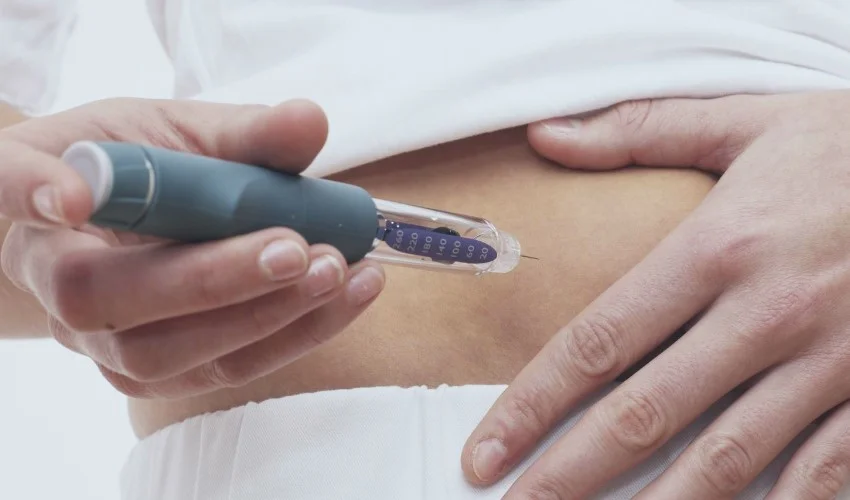Living with diabetes can present numerous challenges, both physical and emotional. Diabetes management requires constant attention to blood sugar levels, medications, diet, exercise, and potential complications. However, amidst these challenges, cultivating a positive mindset and practicing gratitude can play a significant role in improving the quality of life for individuals with diabetes. In this article, we will explore the importance of gratitude in diabetes management and how it can positively impact both physical and mental well-being. By understanding the benefits of gratitude and implementing simple strategies to cultivate it, diabetic patients and their caregivers can enhance their overall sense of well-being.
Understanding Diabetes: A Complex Condition
Before delving into the role of gratitude in diabetes management, it is crucial to have a basic understanding of diabetes itself. Diabetes is a chronic metabolic disorder characterized by high blood sugar levels due to insufficient insulin production or ineffective utilization of insulin by the body. There are two main types of diabetes: type 1 and type 2.
Type 1 diabetes is an autoimmune condition where the body’s immune system mistakenly attacks and destroys the insulin-producing cells in the pancreas. It typically develops in childhood or adolescence and requires individuals to rely on insulin injections for the rest of their lives. Type 2 diabetes, on the other hand, is primarily influenced by lifestyle factors such as obesity, sedentary behavior, and poor dietary choices. It is the most common form of diabetes and can often be managed with a combination of lifestyle changes, oral medications, and sometimes insulin.
Regardless of the type, diabetes requires lifelong management and self-care. People with diabetes must monitor their blood glucose levels regularly, adhere to medication regimens, follow a healthy diet, engage in physical activity, and manage stress levels effectively. While these aspects of diabetes management are well-known, the role of gratitude in enhancing overall well-being is often overlooked.
The Power of Gratitude: Physical Benefits
Living with diabetes requires constant attention to blood sugar levels, medications, diet, exercise, and potential complications. It can be a challenging journey that impacts both physical and emotional well-being. However, amidst these challenges, cultivating a positive mindset and practicing gratitude can play a significant role in improving the quality of life for individuals with diabetes.
Gratitude has the power to positively influence physical health by reducing stress levels and improving glycemic control. When individuals with diabetes practice gratitude, they experience a range of physical benefits that contribute to their overall well-being. By understanding and harnessing the power of gratitude, individuals can enhance their diabetes management and pave the way for a healthier and more fulfilling life.
Reducing Stress and Improving Glycemic Control
Living with diabetes can be stressful, as individuals constantly need to monitor their blood sugar levels and manage their condition effectively. Stress can have a direct impact on blood glucose levels, as the body’s response to stress involves the release of stress hormones such as cortisol, which can elevate blood sugar levels. By practicing gratitude, individuals can mitigate stress levels, leading to improved glycemic control.
A study published in the Journal of Personality and Social Psychology examined the effects of gratitude on stress and blood glucose control in individuals with type 2 diabetes. The study participants were divided into two groups: a gratitude group and a control group. The gratitude group was instructed to keep a gratitude journal, writing down three things they were grateful for each day. The control group did not engage in any gratitude practices.
After several weeks, the researchers found that the gratitude group experienced lower levels of stress and had better blood glucose control compared to the control group. The act of focusing on the positive aspects of life and appreciating what one has can help individuals manage stress more effectively and maintain stable blood sugar levels. By incorporating gratitude into their daily routine, individuals with diabetes can experience not only reduced stress but also improved overall glycemic control.
Promoting Healthy Behaviors
Gratitude has the potential to motivate individuals to engage in healthier behaviors. When individuals appreciate their bodies and health, they are more likely to make positive choices regarding nutrition, exercise, and medication adherence. A study conducted by Emmons and McCullough (2003) demonstrated the link between gratitude and healthy behaviors.
The study involved participants keeping a gratitude journal for several weeks and compared their behaviors with a control group that did not engage in gratitude exercises. The findings revealed that individuals who practiced gratitude exercised more regularly, consumed a healthier diet, and had better medication adherence compared to those who did not engage in gratitude exercises.
By being grateful for their body’s resilience and the opportunity to take care of their health, individuals with diabetes can be more motivated to adopt and maintain healthy lifestyle habits. They may develop a deeper appreciation for the positive impact of exercise, nutritious food choices, and medication adherence on their overall well-being.
The Psychological Impact of Gratitude
Living with diabetes can sometimes lead to emotional distress, including feelings of frustration, anxiety, and depression. The constant management and potential complications of the condition can take a toll on an individual’s mental well-being. However, amidst these challenges, cultivating a sense of gratitude can have a profound psychological impact on individuals with diabetes.
Enhancing Emotional Well-being
Living with diabetes can sometimes lead to emotional distress, including feelings of frustration, anxiety, and depression. Gratitude can serve as a powerful tool to counteract these negative emotions and enhance emotional well-being.
A study published in the Journal of Research in Personality investigated the relationship between gratitude and emotional well-being in individuals with chronic illnesses, including diabetes. The study participants were asked to complete daily gratitude exercises for two weeks. At the end of the study, the researchers found that individuals who regularly practiced gratitude reported higher levels of positive emotions, including optimism, joy, and happiness.
By focusing on the positive aspects of their lives, such as supportive relationships, access to healthcare, and personal achievements, diabetic patients can experience improved emotional well-being and better coping mechanisms. Gratitude helps individuals shift their mindset from dwelling on challenges and limitations to appreciating the blessings and opportunities present in their lives.
Building Resilience
The daily management of diabetes can be challenging, and setbacks are common. However, cultivating gratitude can foster resilience and help individuals bounce back from adversity.
Research suggests that gratitude helps individuals develop a positive mindset and enhances their ability to overcome obstacles. By acknowledging and appreciating the progress they have made in managing their diabetes, diabetic patients can build resilience and develop a more optimistic outlook on their condition. Gratitude acts as a reminder of the strength and determination they possess and can serve as a source of motivation during difficult times.
Strategies for Cultivating Gratitude
Practicing gratitude is not a passive act; it requires conscious effort and intentionality. Fortunately, there are various strategies that individuals can incorporate into their daily lives to cultivate and nurture a sense of gratitude. By engaging in these strategies, diabetic patients and their caregivers can enhance their overall well-being and experience the transformative power of gratitude. In this section, we will explore two effective strategies for cultivating gratitude: gratitude journaling and expressing gratitude to others. These strategies provide practical ways to integrate gratitude into daily routines, allowing individuals to reap the benefits of a positive mindset and appreciation for life’s blessings.
Gratitude Journaling
One effective strategy for cultivating gratitude is keeping a gratitude journal. This involves regularly writing down three to five things individuals are grateful for each day. It can be as simple as appreciating a delicious meal, spending time with loved ones, or witnessing a beautiful sunset.
By actively acknowledging and documenting these positive aspects of life, individuals can train their minds to focus on gratitude and foster a positive outlook. Gratitude journaling can be done in the morning or evening, providing an opportunity to reflect on the day and find moments of gratitude. The act of writing reinforces the positive experiences and emotions associated with them, making gratitude a conscious and intentional practice.
Expressing Gratitude to Others
Another way to cultivate gratitude is by expressing appreciation to others. Taking the time to thank friends, family, healthcare providers, or even oneself can create a positive ripple effect.
Small acts of kindness, such as writing thank-you notes or expressing gratitude verbally, not only benefit the recipients but also contribute to the overall sense of well-being of the individual expressing gratitude. By acknowledging the support and care received from others, individuals with diabetes can strengthen their social connections and foster a sense of gratitude and positivity in their relationships.
In conclusion, cultivating a positive mindset and practicing gratitude can have a profound impact on diabetes management and overall well-being. The physical benefits of gratitude include reduced stress levels and improved glycemic control, while the psychological benefits include enhanced emotional well-being and resilience.
By implementing simple strategies such as gratitude journaling and expressing appreciation to others, diabetic patients and their caregivers can harness the power of gratitude to improve their quality of life. As they navigate the challenges of diabetes, embracing a positive mindset can provide a foundation for resilience, optimism, and a greater sense of gratitude for the precious gift of health.




